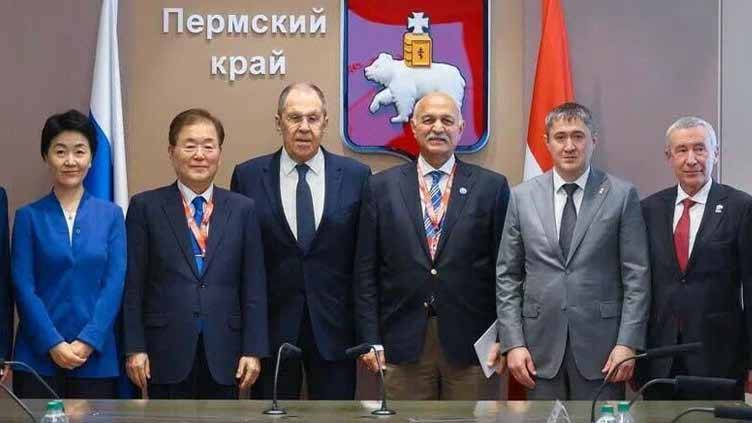emranabbas
Test Debutant
- Joined
- Oct 29, 2013
- Runs
- 13,086
At the Eurasian Forum in Perm, Russian Foreign Minister Sergey Lavrov issued sharp criticism of India’s growing alignment with Western-led alliances, particularly targeting the QUAD and the Indo-Pacific Strategy. He dismissed the Indo-Pacific concept as a Western construct, asserting it was designed by NATO to counterbalance China and draw India into a confrontational posture in the region.
Lavrov’s remarks were notably pointed given the presence of a 12-member Indian delegation, including three BJP representatives. He revealed that Indian officials had previously assured Russia that QUAD participation was focused solely on trade and economic matters. However, Lavrov highlighted ongoing military cooperation among QUAD nations, including joint naval exercises, contradicting India's stated position and reportedly leaving the Indian delegation taken aback.
Lavrov also warned that NATO appeared to be seeking new ways to re-enter Afghanistan, despite its chaotic exit from the country four years ago. He accused the alliance of trying to reassert influence in the region under the guise of security and stability.
Ahead of the forum, Lavrov held a 40-minute meeting with Pakistani Senator Mushahid Hussain Syed, who thanked Russia for maintaining a neutral stance during past India-Pakistan tensions. Senator Mushahid was the only Pakistani delegate invited to deliver a keynote address at the event, which brought together over 100 participants from 25 countries.
Both Lavrov and Senator Mushahid emphasized a vision of regional cooperation rooted in peace and non-alignment. Senator Mushahid praised Russia’s Eurasian Security Initiative and echoed opposition to military blocs like an “Asian NATO” or the Indo-Pacific Strategy, aligning his views with those of President Putin and China’s President Xi Jinping.
During the forum, Mushahid joined Lavrov and key leaders from China, Türkiye, South Korea, and Cambodia in reaffirming their commitment to building a peaceful, multipolar Eurasian region. Speaking to Russian media, he emphasized Pakistan’s readiness to serve as an equal partner in this vision.

 www.nation.com.pk
www.nation.com.pk
Lavrov’s remarks were notably pointed given the presence of a 12-member Indian delegation, including three BJP representatives. He revealed that Indian officials had previously assured Russia that QUAD participation was focused solely on trade and economic matters. However, Lavrov highlighted ongoing military cooperation among QUAD nations, including joint naval exercises, contradicting India's stated position and reportedly leaving the Indian delegation taken aback.
Lavrov also warned that NATO appeared to be seeking new ways to re-enter Afghanistan, despite its chaotic exit from the country four years ago. He accused the alliance of trying to reassert influence in the region under the guise of security and stability.
Ahead of the forum, Lavrov held a 40-minute meeting with Pakistani Senator Mushahid Hussain Syed, who thanked Russia for maintaining a neutral stance during past India-Pakistan tensions. Senator Mushahid was the only Pakistani delegate invited to deliver a keynote address at the event, which brought together over 100 participants from 25 countries.
Both Lavrov and Senator Mushahid emphasized a vision of regional cooperation rooted in peace and non-alignment. Senator Mushahid praised Russia’s Eurasian Security Initiative and echoed opposition to military blocs like an “Asian NATO” or the Indo-Pacific Strategy, aligning his views with those of President Putin and China’s President Xi Jinping.
During the forum, Mushahid joined Lavrov and key leaders from China, Türkiye, South Korea, and Cambodia in reaffirming their commitment to building a peaceful, multipolar Eurasian region. Speaking to Russian media, he emphasized Pakistan’s readiness to serve as an equal partner in this vision.

Russia slams India’s ties with pro-west alliances, warns against NATO’s return to Afghanistan
At the Eurasian Forum in Perm, Russian Foreign Minister Sergey Lavrov issued sharp criticism of India’s growing alignment with Western-led alliances,











